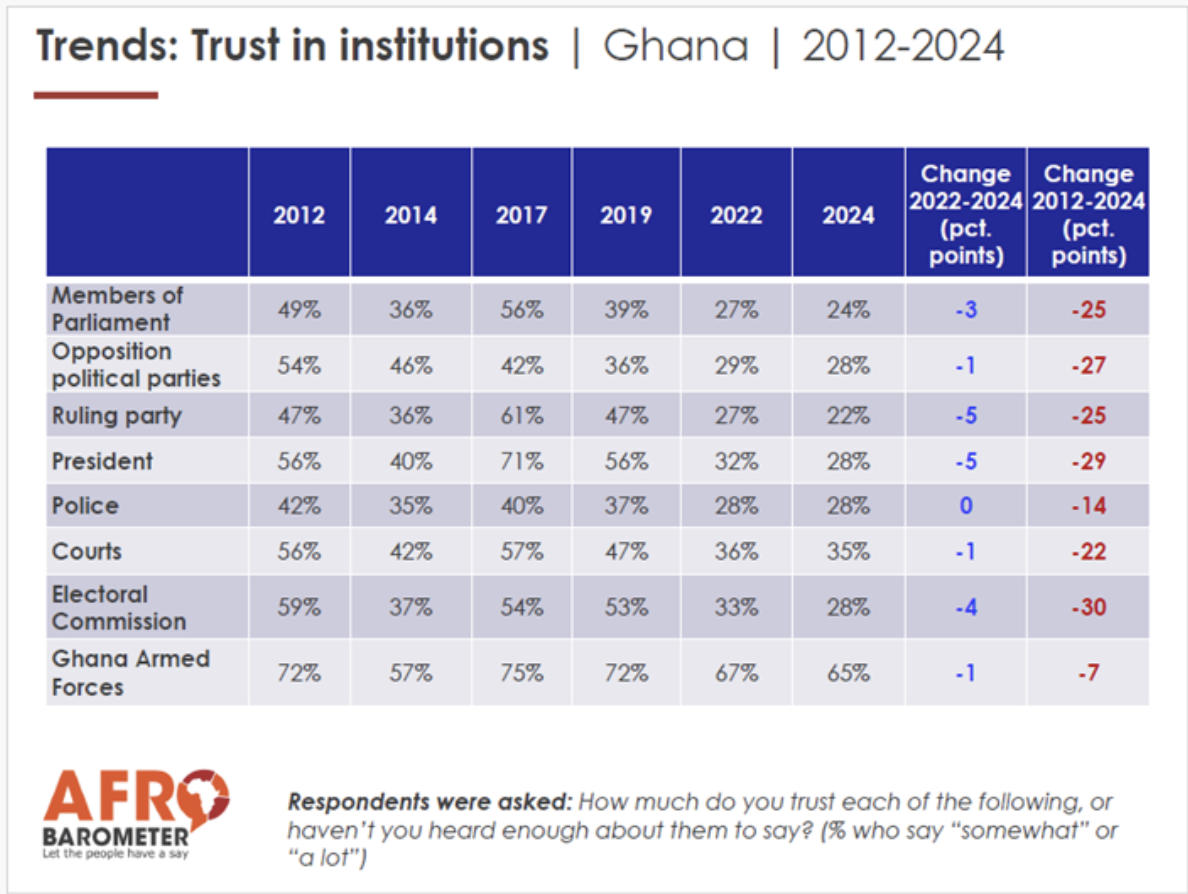
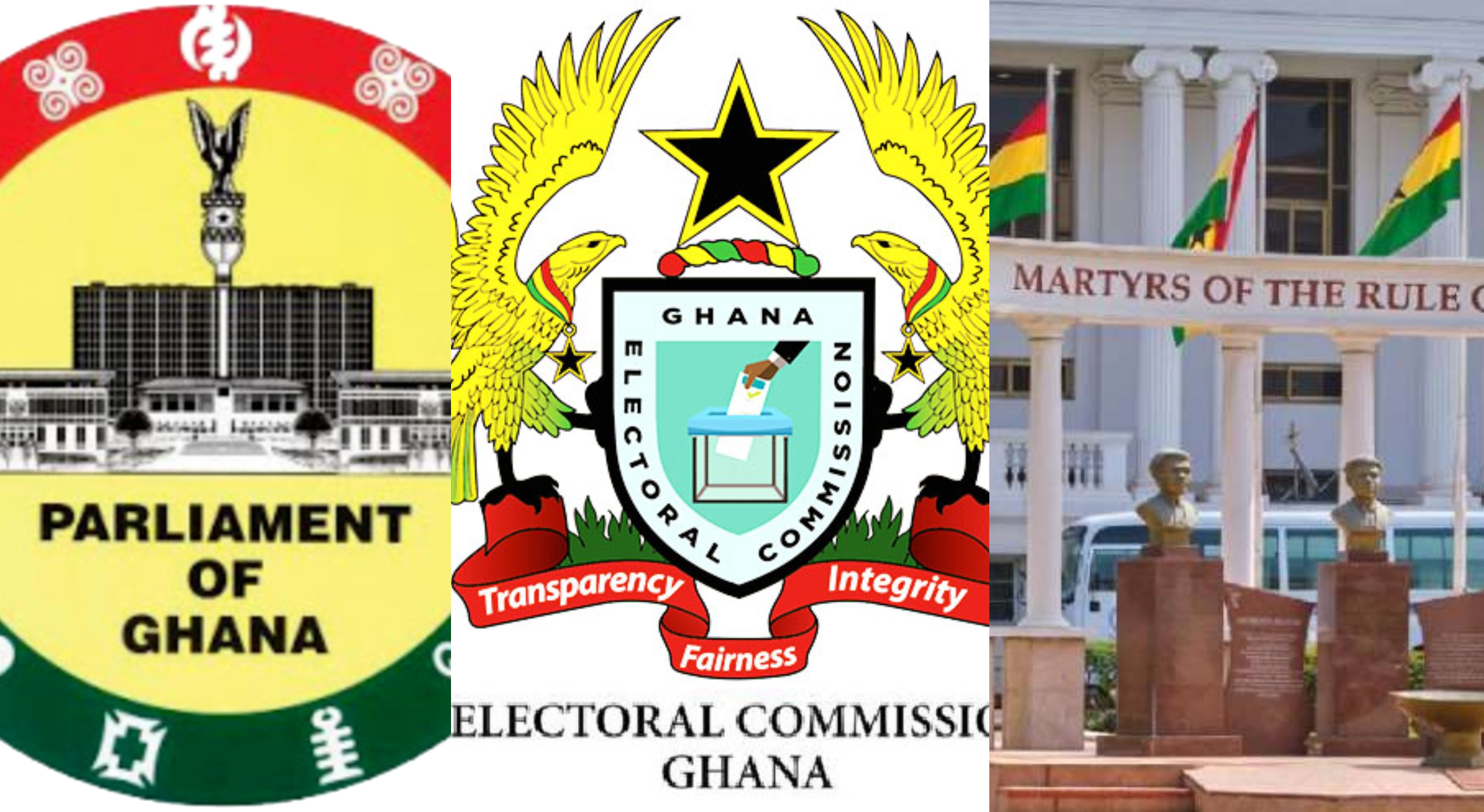
With the 2024 elections just weeks away, the latest Afrobarometer report reveals crucial insights into the public’s perception of key state institutions.
Respondents were asked “How much do you trust each of the following (e.g. Ghana Armed Forces, religious leaders, NGOs, president, Electoral Commission, etc.) or haven’t you heard enough about them to say?” This question reflects citizens’ significant concerns about the integrity of state entities, particularly the members of parliament, the police, and the Electoral Commission.
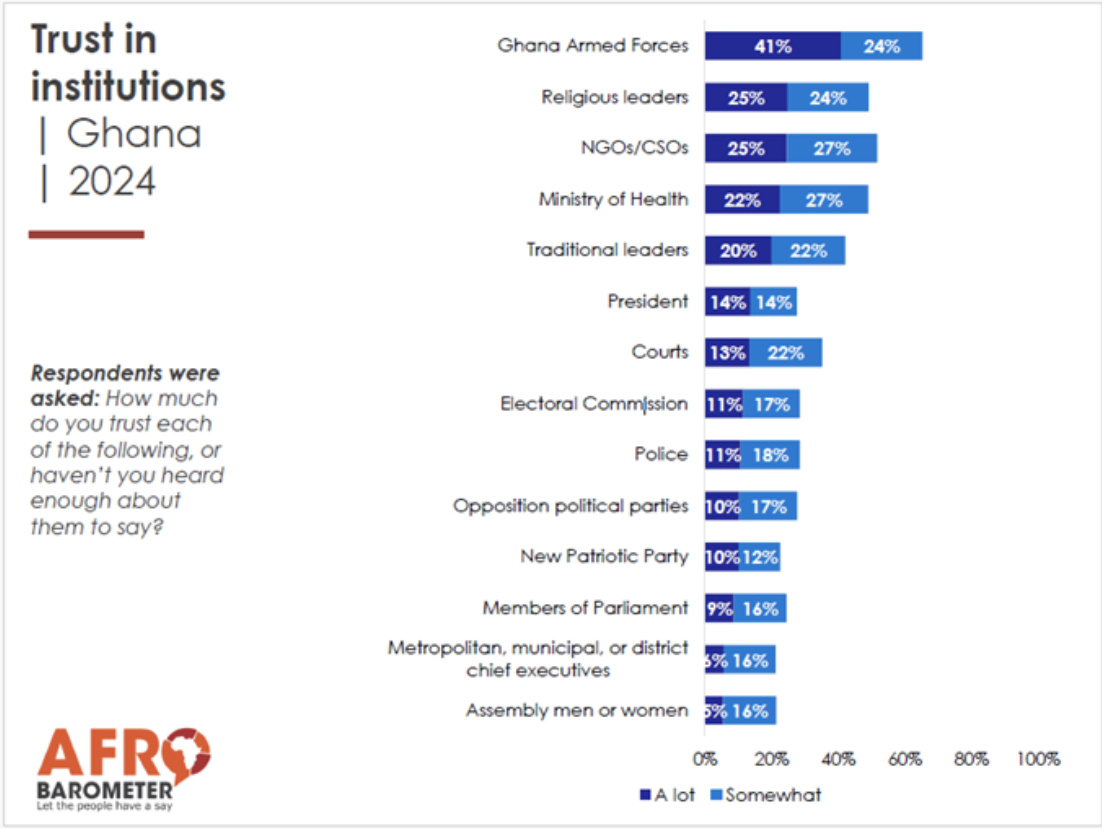
In contrast, the Ghana Armed Forces, religious leaders, and NGOs emerged as the most trusted institutions.
However, while the report indicates only a marginal drop in citizens’ trust in key institutions and officials compared to 2022, it highlights a major decrease in trust since 2012. According to the report, public trust in institutions such as the presidency, parliament, and the Electoral Commission has eroded considerably over the past decade.

Only 28% of respondents currently trust the Electoral Commission, which is responsible for organising the 2024 elections on 7 December in a fair and transparent manner. This marks a notable drop from the 59% trust level the Commission held in 2012.
While the report indicates a decline in public trust in various institutions, this goes hand in hand with heightened scepticism towards officials perceived as corrupt. According to the report, three-quarters (74%) of Ghanaians believe that corruption levels increased “somewhat” or “a lot” over the past year, which is a slight improvement of 3% compared to last year’s figures.
The police are viewed as the most corrupt public institution, a notorious record they have held for many years, followed by the office of the president and tax officials.
Despite these concerns about institutional integrity, the report shows that 60% of Ghanaians think the 2020 election was “completely free and fair” or “free and fair with minor problems.”
However, Dr Edem Selormey, Director of Research at CDD Ghana, emphasised during the launch of the report that this distrust in institutions is concerning. Institutions, she noted, play a critical role in a democracy by promoting accountability, protecting citizens’ rights, upholding the rule of law, and fostering citizen participation.
Prof. John Osae-Kwapong, Democracy and Development Fellow at CDD-Ghana, shares a similar view. He recently wrote: “Such feelings about the country’s institutions must concern everyone, given the role each of these institutions play in ensuring good governance and democratic development.”
The findings of the Afrobarometer report underscore a troubling decline in public trust towards key state institutions in Ghana, particularly as the 2024 elections approach. While some institutions like the Ghana Armed Forces and NGOs maintain higher levels of trust, the significant erosion of confidence in the Electoral Commission, the presidency, and the police raises serious concerns about governance and accountability. The prevailing perception of increased corruption further exacerbates this distrust, highlighting a critical need for reforms to restore faith in these institutions.
Read Full Story



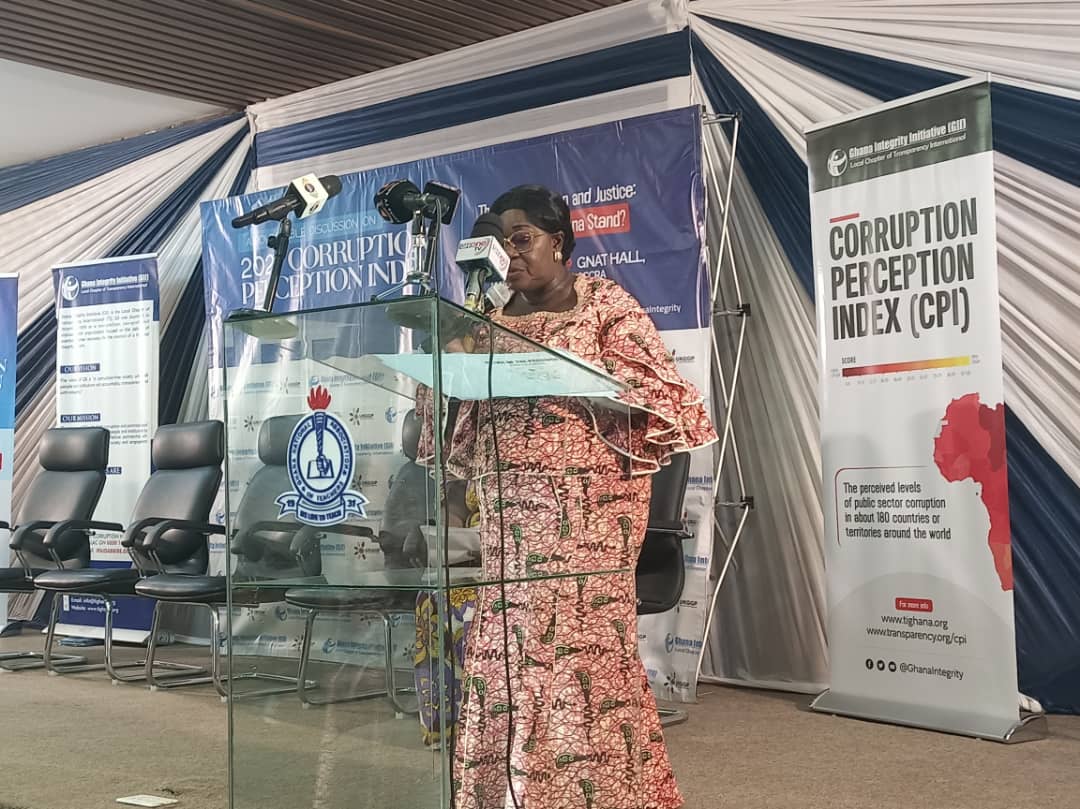
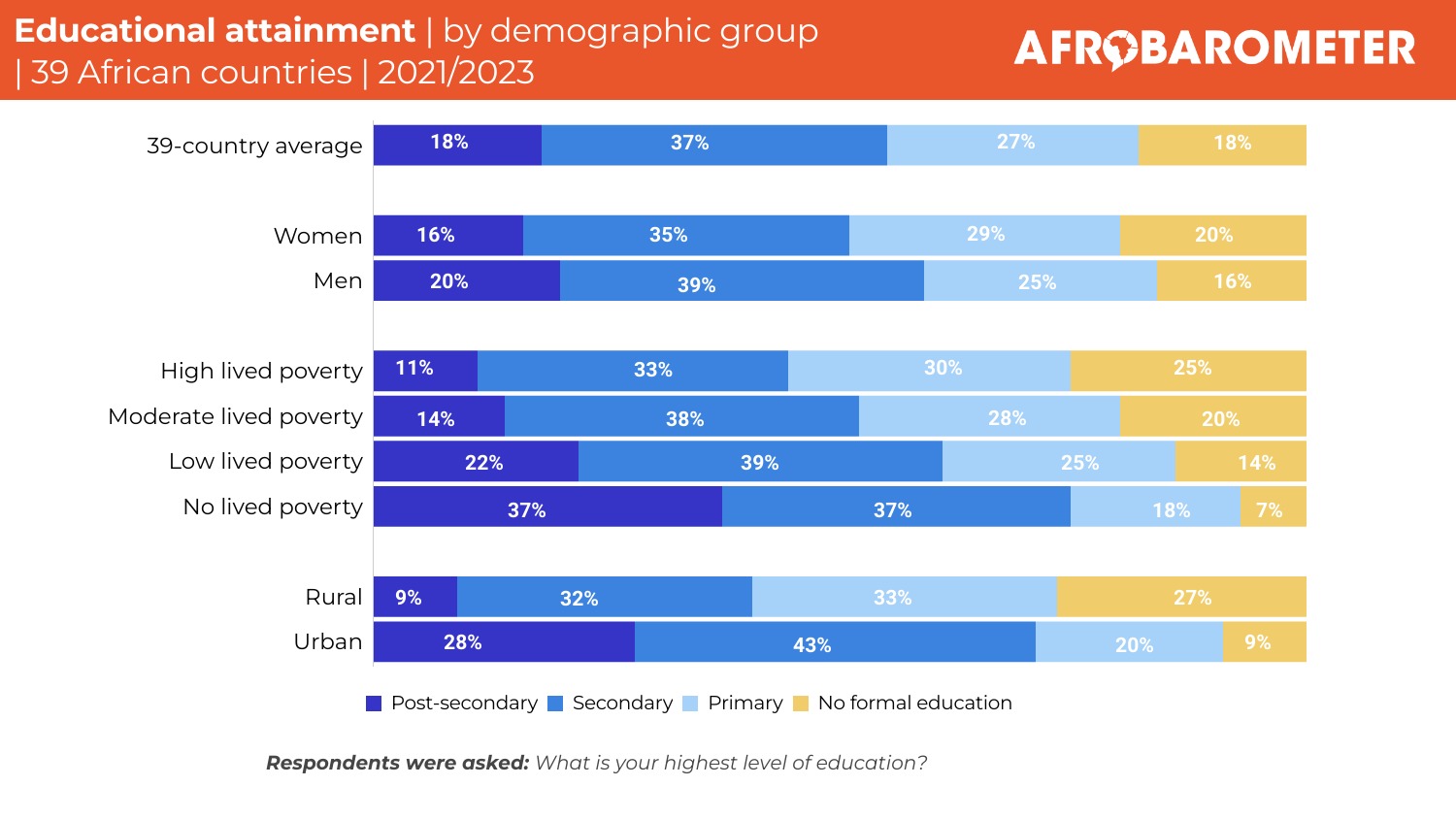
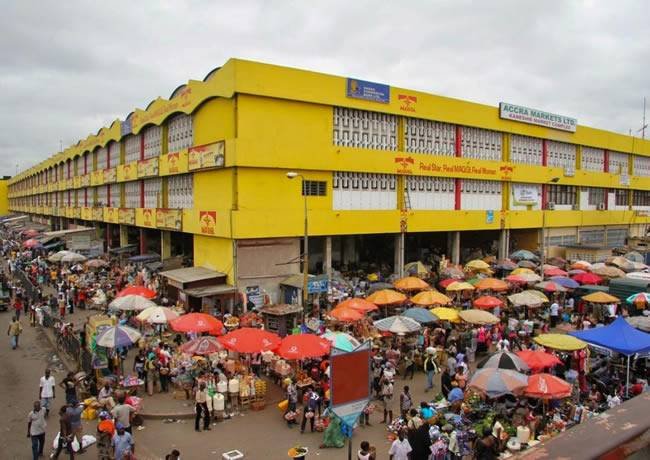
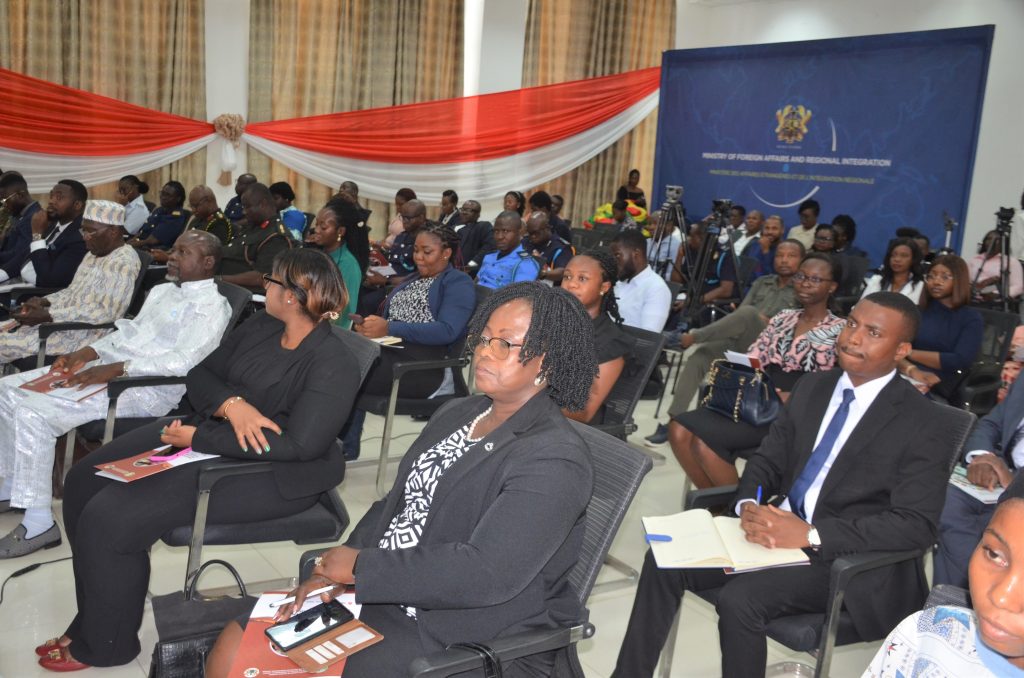



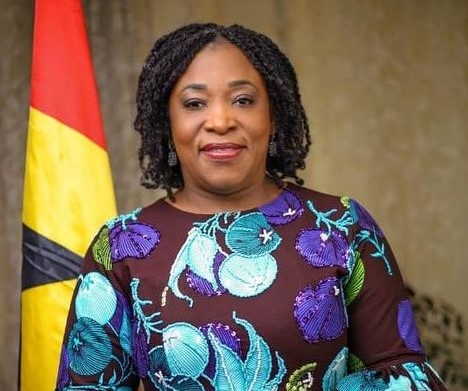







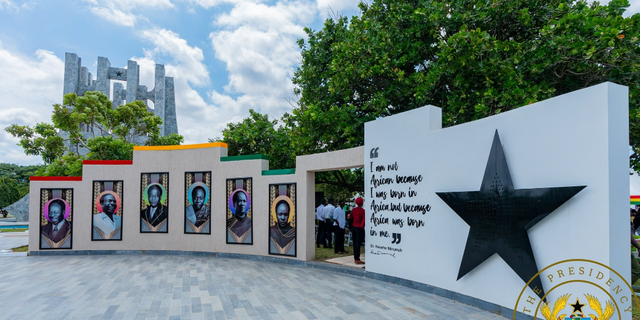

Facebook
Twitter
Pinterest
Instagram
Google+
YouTube
LinkedIn
RSS